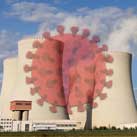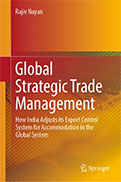Treaty on the Prohibition of Nuclear Weapons
The Treaty on Prohibition of Nuclear Weapons has not succeeded in adding any additional universal stigma to nuclear weapons. It lacks the support base needed for replacing the Cold War vintage “Mutual Assured Destruction” with “Mutual Assured Abstinence”. The nuclear weapon countries’ faith in the deterrence logic remains intact.
- Rajiv Nayan |
- August 11, 2021 |











